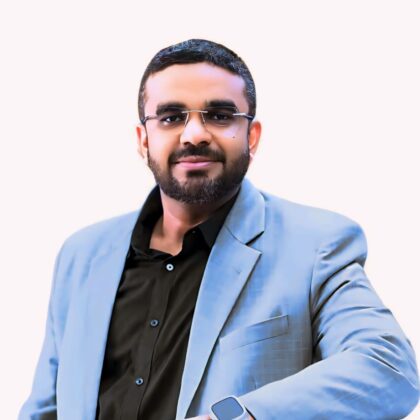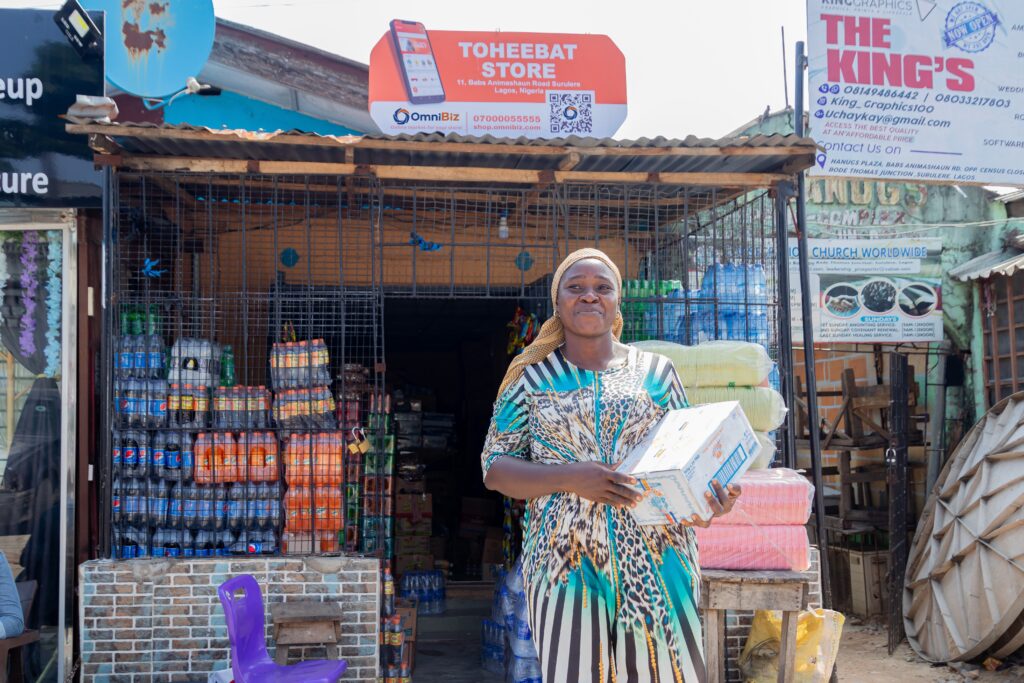

Modernising Africa’s retail infrastructure: OmniRetail’s CEO shares his insights
Informal retailers are the backbone of commerce across sub-Saharan Africa. They account for millions of livelihoods across the continent, provide vital goods and services to local communities, and contribute significantly to the region’s gross domestic product (GDP). However, informal retailers constantly have to deal with disorganised supply chains, fragmented distribution, and economic instability. OmniRetail is stepping up to provide essential digital infrastructure to tackle these challenges and recently topped the Financial Times ranking of Africa’s fastest growing companies.
A digital solution for informal infrastructure
We were delighted to be joined by Deepankar Rustagi, founder and CEO of OmniRetail at our recent September Round Table. Deepankar has now lived in Nigeria for over 25 years, and speaks fondly of the country he calls home: “What really excites me about Nigeria is the warmth of the people. On the professional side, the opportunities for scaling and creating impact in the market keep us in Nigeria – and jollof rice is an important part of life, of course,” Deepankar shared with a smile.
During his time in the country, Deepankar has built up substantial experience in the fast-moving consumer goods (FMCG) sector. He saw clearly that a lack of digital infrastructure was a growing problem when distributing goods in large African markets: “Finding essential products at the right price – or even ensuring availability – became a very big challenge, predominantly because distribution has multiple layers of process, and these layers are not digitised or connected,” Deepankar said. This makes it difficult for manufacturers to plan what to produce; it is a constant struggle to accurately assess supply and demand, and to ensure reliable access to high-quality essentials for underserved communities.
Founded in 2019, “OmniRetail came in and tried to build an infrastructure layer where we can identify [and digitise] the right stakeholders to ensure essential goods can flow efficiently from manufacturer to retailer, ensuring availability and the right prices for every community – as is a basic right,” Deepankar explained. Today OmniRetail is transforming how small retailers – particularly those in remote areas – access the products and financial services they need to grow their businesses.
An accessible ecosystem
OmniRetail has built a streamlined digital ecosystem that is simple to use with existing mobile technology, allowing manufacturers and distributors to immediately manage products and inventory more efficiently. The OmniRetail team has onboarded logistics providers across its market: “We realised it is only effective when local logistics providers take the goods within their areas. We trained them on how to use the technology, and in this way, we built an infrastructure of fulfilment.”
The next link in OmniRetail’s chain was the local retailers, who are often in remote locations and can struggle with unreliable availability and the resulting reduced margins: “They were more than happy to onboard [OmniRetail’s platform]! The retailer can now see the products that are available from the distributors’ inventory. He doesn’t need to worry which distributor he’s buying from, or how many he’s buying from – he places the order on a single platform,” Deepankar explained.
A holistic approach
Taking the advantages of this digital system a step further, OmniRetail’s platform can map the related bank accounts of retailers and distributors, assigning credit worthiness to different stakeholders at different points in a product’s journey. “This enables us to partner with large financial organisations who are interested in lending to the ‘bottom of the pyramid’,” explained Deepankar.
The heartbeat of the African economy is, after all, the traditional retailer; OmniRetail is eager to recognise and expand the retailer’s potential to make social impact. 78% of OmniRetail’s traditional retailer users are women-owned businesses, and over half of their retailers are unbanked. Enabling small- and medium-enterprises to access credit is crucial to grow their business, and over 60,000 users have availed of OmniRetail’s financial inclusion services so far. OmniRetail’s system works; over 5,000 of their SME users have seen income increases since adopting OmniRetail’s platforms, which supports their households, communities, and a more inclusive economy.
This pragmatic view of financial inclusion was particularly attractive for Goodwell and our investment partner Alitheia Capital when we chose to invest in OmniRetail as part of our uMunthu II fund; their holistic approach to improving the supply of essential goods and services is bettering the lives of over one billion people. Deepankar clearly illustrated this impact by sharing the story of one female retailer using their platform: in the past, she struggled to travel to wholesalers to stock her shop. Since working with OmniRetail, she has opened two additional shops, and now places and an order nearly every day via their app.
Scaling up and increasing impact
The company trialled their concept within the Nigerian capital of Lagos, only scaling up when they saw the model working there. They grew into the national market, and in 2023, they launched in Côte d’Ivoire. That November, they recorded a profit for the first time, and in 2024, OmniRetail launched in Ghana. Today, OmniRetail has integrated 13 different financial service providers onto their platform, serving 134 manufacturers, 4,865 distributors, 1,100 logistics vehicles, and 144,000 retailers across 12 different markets.
OmniRetail is now the first profitable B2B commerce company in Africa, with a topline around 14.5 billion Nigerian naira (approximately USD 11.2 million).
As it grows, OmniRetail remains focussed on empowering underrepresented entrepreneurs – particularly women – and is an inspiring example of how profitable technological solutions can drive positive social and commercial change.
